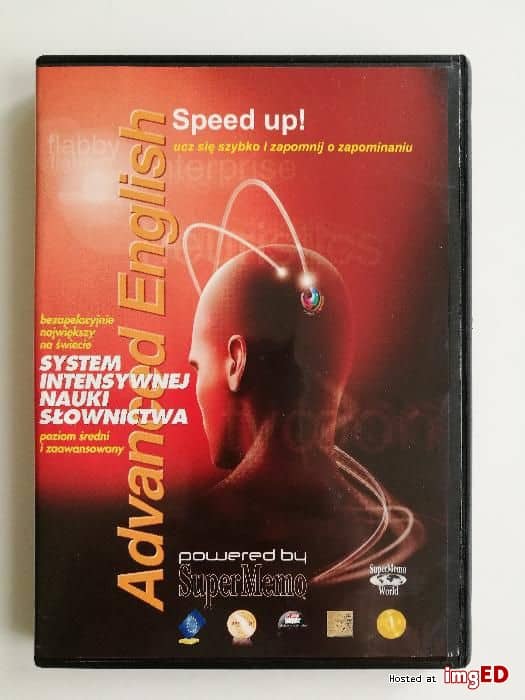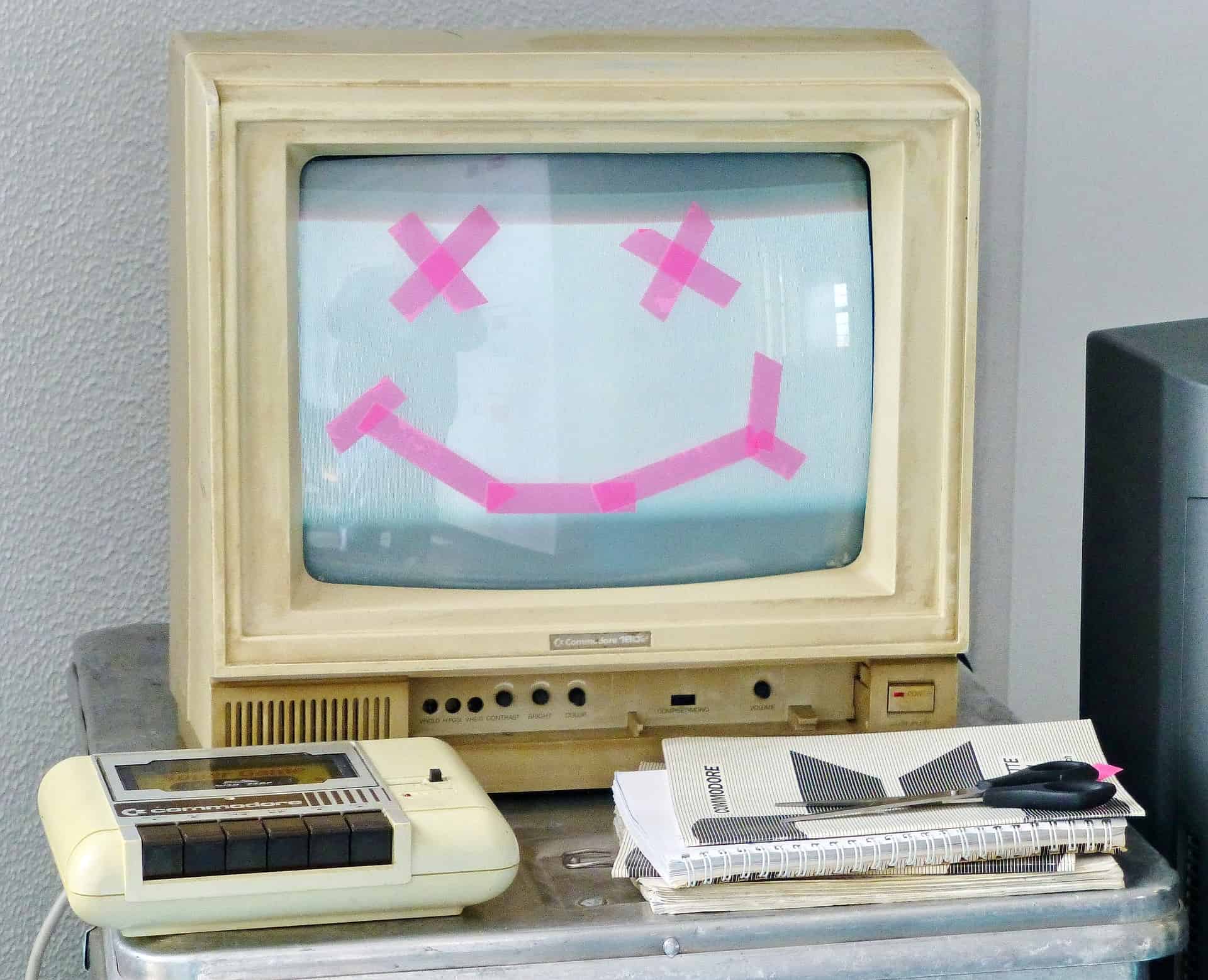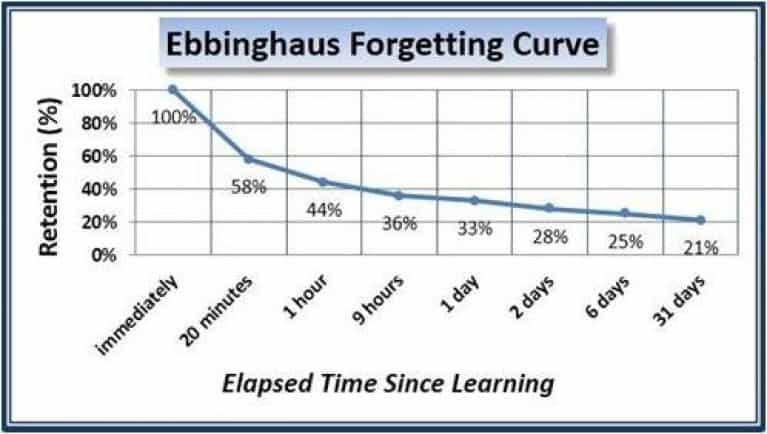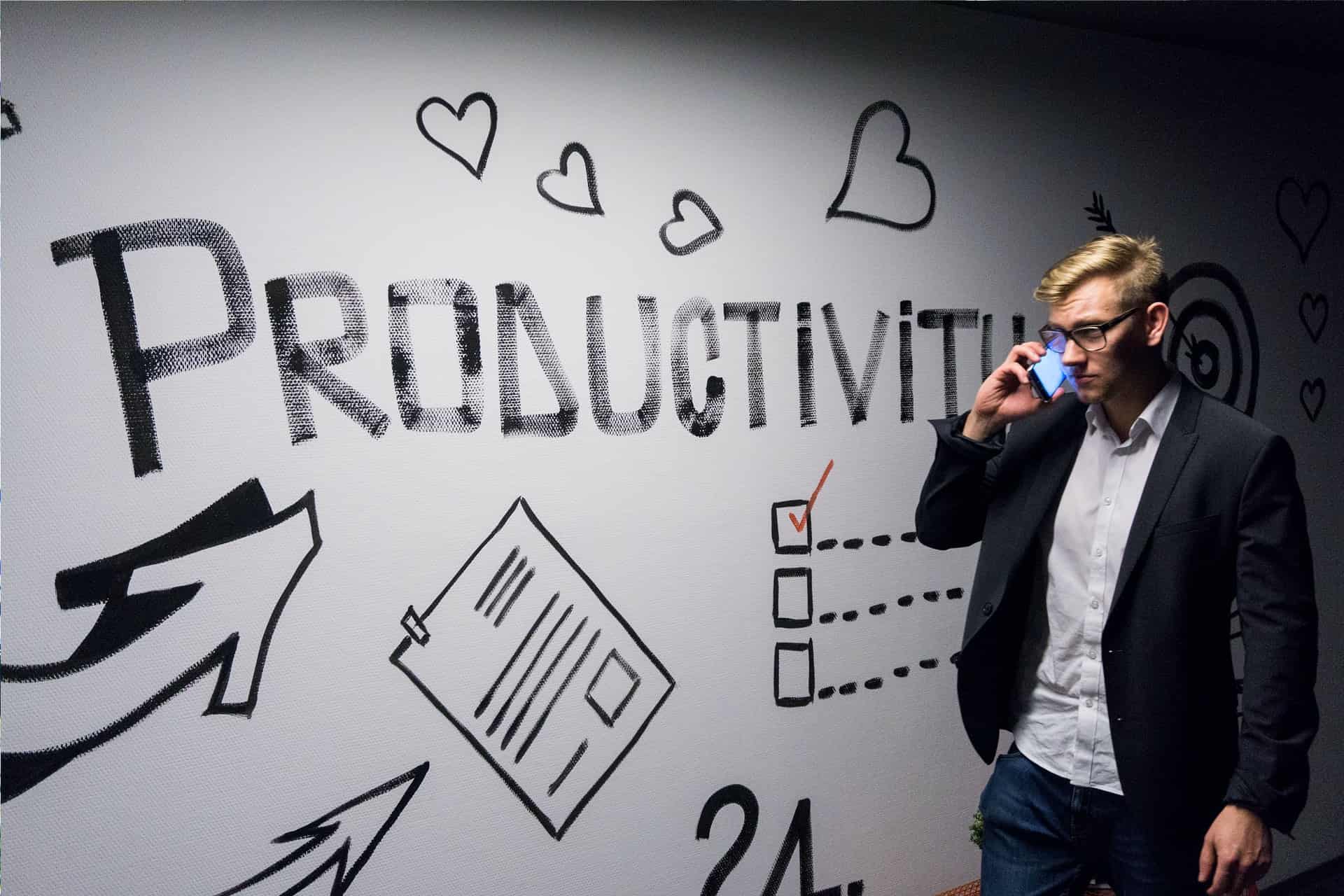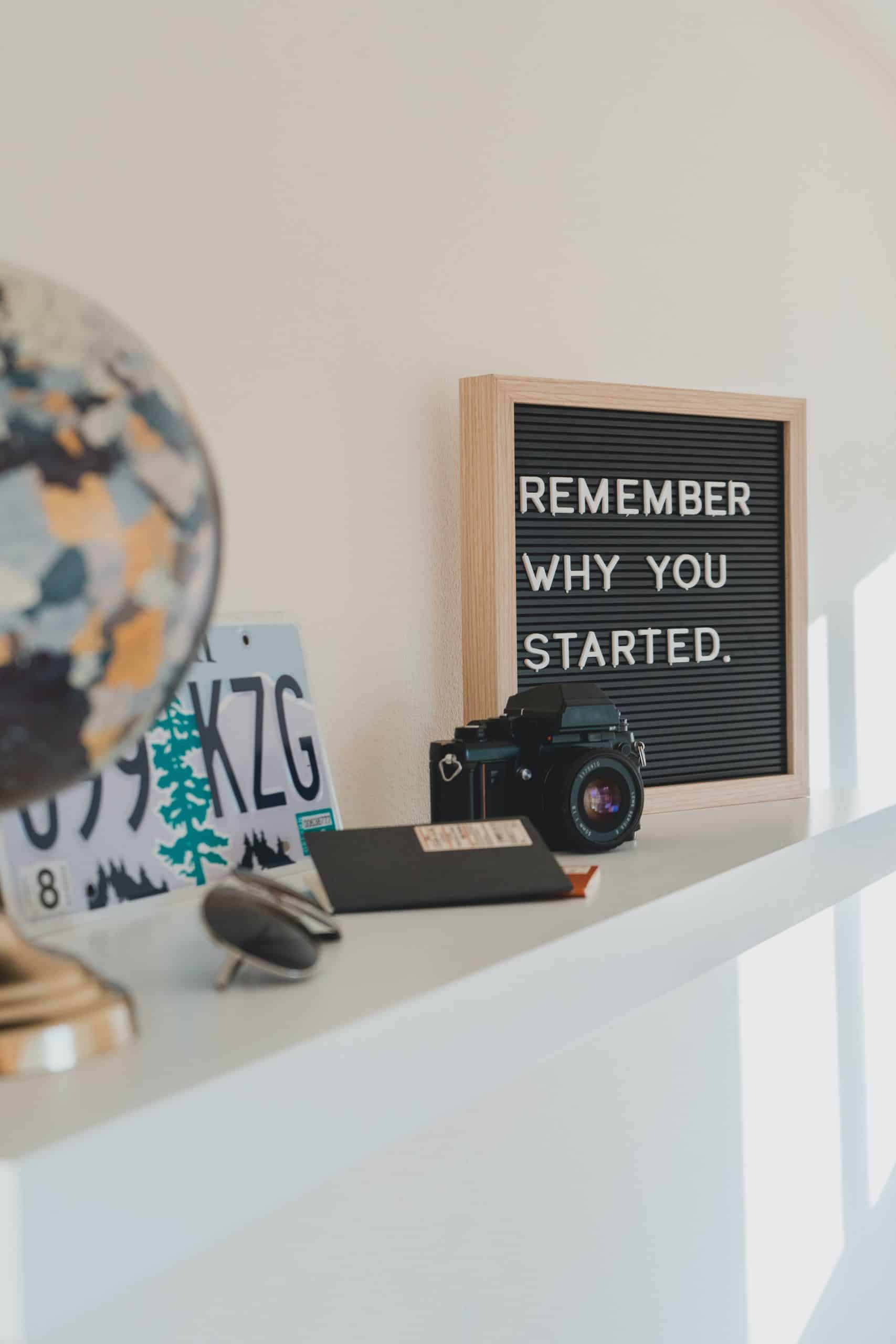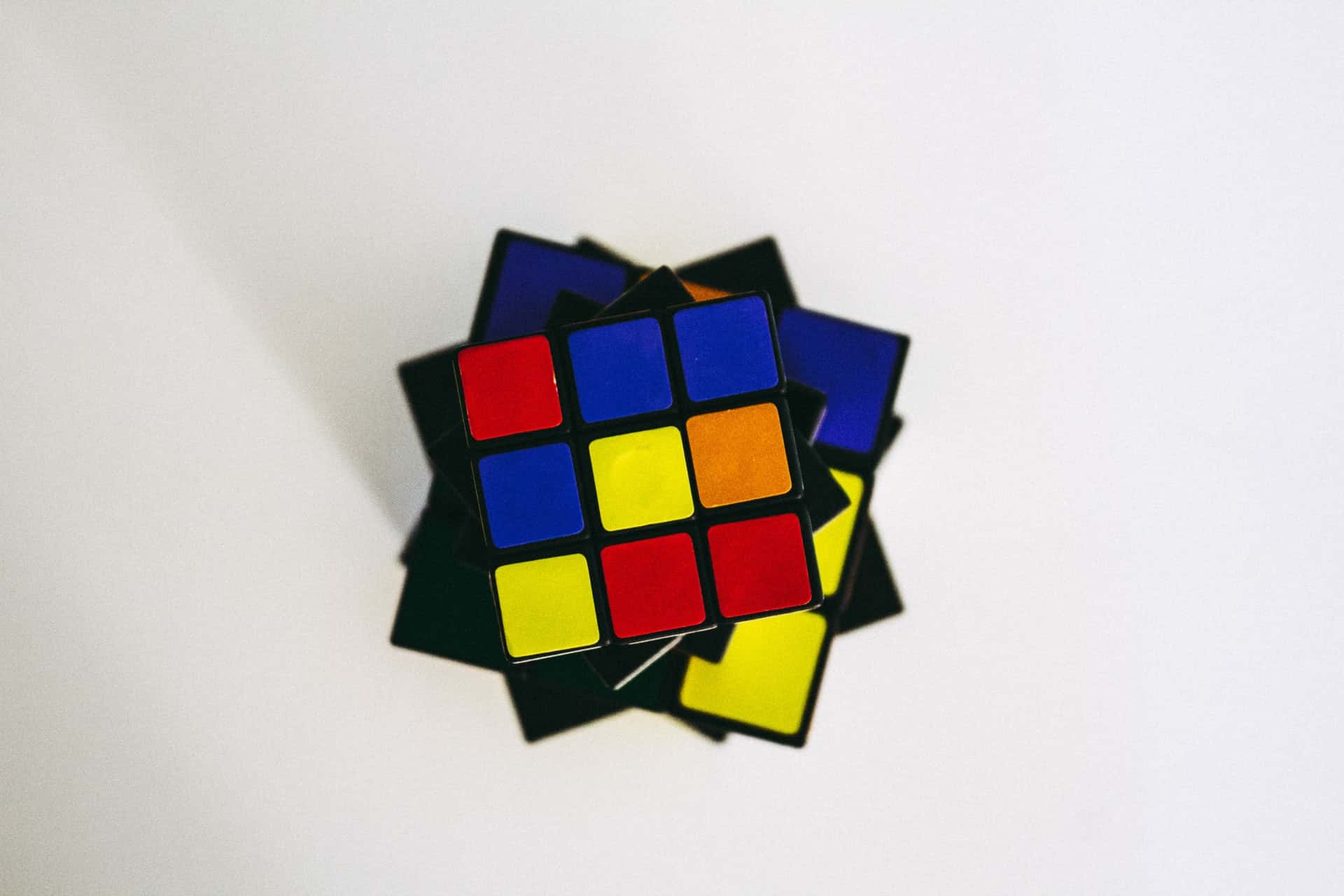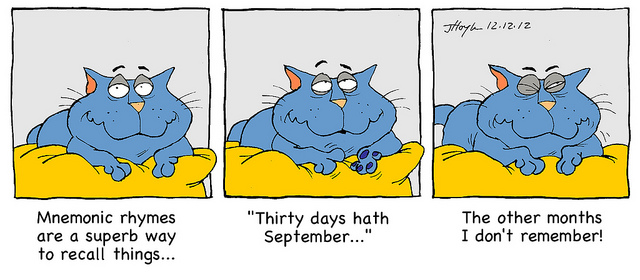Over 30 Things You Can Learn from All My Failed and Successful Memory Experiments

I often talk about what effective learning methods are all about but I have almost never mentioned all the memory experiments I have run which have failed miserably. It might give you the impression that this is the knowledge which came to me easily. On the contrary.
It was like wading through the puddle of crap to pick up something which seemed to be the gem of wisdom. Only to realize later that it was actually a fossilized chunk of crap. Only to realize a couple of months down the road that it was actually a beautiful diamond hidden beneath the dry shell.
I think you get my point. It was a confusing process where I had to rediscover time and time again different truths in different contents.
Of course, my process of reasoning wasn't very rigorous at the beginning. Neither were my memory experiments. I was kind of going with my gut and trying to notice whether I remember more or less.
Only later did I start to actually construct hypotheses and test them. Everything got even easier when I started learning more about memory and reading studies related to this area of knowledge.
Before I share with you my conclusions and failures, let's start with how my experiments were run.
What was the framework of my memory experiments?
This is a simple blueprint which I have used to run my memory experiments:
- 1come up with hypotheses
- 2set yourself a suitable deadline to test the idea (ideally, at least 3 weeks - 1 month)
- 3test it
- 4measure the results at the end of your memory experiment
- 5draw conclusions
- 6rinse and repeat
How did I choose words for my memory experiments?
This is a very important question. Some people think that any words will do. That's far from the truth.
If you want to run a meaningful memory experiment you need to make sure that the words tested are as different from any other words and concepts you know as it's only possible.
The reason is that your current knowledge modulates the new knowledge you want to acquire.
If you know English and you're learning French your results will be immediately distorted. Depending on a source, 40-50% of English words originate from French.
If you want to get unbiased results you need to test the words from languages you know nothing of.
In my case, I frequently tried to memorize words from languages like Basque, Finnish, and Hungarian. They were absolutely foreign to me and I couldn't associate them in any way with my background knowledge.
"Collectively, these findings provide strong evidence that pre-experimental stimulus familiarity determines the relative costs and benefits of experimental item repetition on the encoding of new item-source associations. By demonstrating the interaction between different types of stimulus familiarity, the present findings advance our understanding of how prior experience affects the formation of new episodic memories." - Pre-experimental stimulus familiarity modulates the effects of item repetition on source memory - Hongmi Lee, Kyungmi Kim, Do-Joon Yi, 2018
Also, it's worth noting that a typical batch of items which I tried to commit to my memory was 20. Typically, I tried to memorize between 3-5 batches.
What did I test?
Time to get to the nitty-gritty of my memory experiments. As you already know, I experimented almost exclusively with words which were completely foreign to me in order to minimize my background knowledge interference.
Another important part is the methods I used to test my knowledge. I always tested my recalls using the following methods:
Free recall
Free recall describes the process in which a person is given a list of items to remember and then is tested by being asked to recall them in any order. Free recall often displays evidence of primacy and recency effects.
Primacy effects are displayed when the person recalls items presented at the beginning of the list earlier and more often. The recency effect is when the person recalls items presented at the end of the list earlier and more often. Free recall often begins with the end of the list and then moves to the beginning and middle of the list.
For that reason, I always tried to recall all the batches at once in order to minimize the number of learning sessions. That gave me the certainty that my results were warped.
Cued recall is when a person is given a list of items to remember and is then tested with cues to remember the material.
There are two basic experimental methods used to conduct cued recall, the study-test method, and the anticipation method. In the study-test method participants study a list of word pairs presented individually.
Immediately after or after a time delay, participants are tested in the study phase of the experiment on the word pairs just previously studied.
One word of each pair is presented in a random order and the participant is asked to recall the item with which it was originally paired. The participant can be tested for either forward recall, Ai is presented as a cue for Bi, or backward recall, Bi is presented as a cue for Ai.
In the anticipation method, participants are shown Ai and are asked to anticipate the word paired with it, Bi. If the participant cannot recall the word, the answer is revealed.
During an experiment using the anticipation method, the list of words is repeated until a certain percentage of Bi words are recalled. - Wikipedia.
The learning curve for cued recall increases systematically with the number of trials completed. This result has caused a debate about whether or not learning is all-or-none.
Why did I use both methods? Because they both show you different things.
"Free recall exercises, are good measures of initial learning and remembering (Mayer, 2009). However, transfer tasks, such as the written fill-in-the-blank activity and the problem-solving task are perhaps better measures of true learning (Mayer, 2009)."
Many people have argued with me that just because they are able to recall words after using some method, it surely means that it's effective. As you can see, it's only a part of the story.
That's why it's also so important to test any method for the prolonged period of time. Always give yourself at least 3 weeks to test your hypothesis. Then measure the results (here are examples of the things you can measure in language learning).
“There are two possible outcomes: if the result confirms the hypothesis, then you’ve made a measurement. If the result is contrary to the hypothesis, then you’ve made a discovery.” – Enrico Fermi
Why even measure it at all?
Measuring your results certainly doesn't sound sexy but it's absolutely necessary. You can't know for sure that one method is better than the other if you don't verify it and you don't control your variables.
What's more, if you don't measure, you can't improve. And that means a great deal in the world of language learning. Using ineffective methods can literally mean that you will have wasted thousands of hours by the end of your life.
I am not that loco and I was never willing to take such a risk. And I am pretty sure you also don't want to be the guy with a tombstone saying, "It took him 20 years to learn a language to an A2 level, what a moron. Love, family."
Whenever you're in doubt - measure your results. It will help you get to the truth.
What does it mean that the experiment failed?
Under every experiment, you will find an explanation of why a given experiment failed or not.
What do I mean by that?
Most of the time it means that it either didn't provide me with the results I expected or it wasn't more effective than the method I tested it against.
Of course, in a sense, none of them failed. They all helped me to understand the science of memory better and to improve my memorization skills. Or in more elegant words of Thomas Edison, I can say that:
"I have not failed. I've just found 10,000 ways that won't work." - Thomas A. Edison
The list of methods I have tested
Below you will find a long list of methods I have tested throughout the years. I can't vouch that I have included all of them. I have a nasty habit of throwing away everything I don't need. Unfortunately, in many instances, the victim of my habit was a bunch of notes documenting my experiment.
All my experiments are accompanied by the main conclusions and complementary articles when needed. Enjoy!
Chapter 0 - The typical school stuff
I guess this is the type of learning which is a baseline for many people. All you do is what they tell you to during a class. You read something, do some grammar exercises, write an essay and so on.
Experiment status:
It failed.
Why did it fail?
What you give is what you get. I think I simply didn't apply myself to learning hence my results were just terrible.
The main takeaway:
Apply yourself? Learn regularly? Take your pick.
Chapter 1 - Using a notebook
The first learning system of my own devising was fairly uncomplicated. Ready for it? Every time when I used to encounter any English words I didn't know, I jotted them down.
Next, I rewrote ALL their meanings, collocations and such from an Oxford Dictionary into my notebook. Then I read my notes on my way to school.
You're probably wondering why I didn't just mark these words in a dictionary and read them there, huh?
Well, maybe because I was fed with a lead spoon as a child. Or it has something to do with repeatedly falling down headfirst from a tree.
I don't know. But these are some of the excuses I use. If it wasn't bad enough I used this method for at least 3 or years when I was about 18-22.
Experiment status:
It failed.
Why did it fail?
The method was clearly unsustainable. It took me a lot of time to rewrite all the words I needed. What's worse, there were so many of them that I couldn't review them in any regular way.
The main takeaway (i.e. what I learned):
This was my first system. It was terrible but it also taught me an important lesson. You will always progress, no matter how slow, if you have any kind of learning system in place. Sure, this one sucked but at least it gave me a systematized way of learning new words and their meanings.
Chapter 2 - SRS programs
I must have been about 19 or 20 when I discovered Spaced Repetition Software.
The first program of this kind which I bought was called SuperMemo Advanced. It was a brilliant creation which ushered in the new era in the world of my personal learning.
Back then, I already spoke quite good English. Or at least that's what I thought. To my surprise, it quickly turned out that out of over 10k words which this program contained, I knew almost none.
My grind started. I started slogging through all these words with dogged determination. I was terrified by the number of reviews I soon amassed but somehow I pulled through. I think it took me about 18 months to cover all the words.
What about the final result?
My vocabulary certainly expanded. Initially, I could recall a lot of words but after some time, the novelty effect wore off. I soon found myself forgetting more and more words despite working my butt off every day.
And thus, I decided to keep on searching for my Holy Grail.
Experiment status:
It kinda failed.
Why did it kinda fail?
The main reason why my experiment failed to some degree is that I didn't create my own sentences. Most programs of this kind give you ready-to-learn sentences.
Unfortunately, if you don't actively encode words on your own, they will slip your memory anyway. The optimization algorithm which programs of this kind use is an extremely powerful tool.
Maybe even the most universal shield against forgetting we currently have. However, no amount of reviews can guarantee that the words you learn will be transferred into your long-term memory if you don't encode them (Craik & Lockhart, 1972; Craik & Tulving, 1975).
The main takeaway (i.e. what I learned):
The optimization algorithms are your best friend learning-wise. It doesn't matter how much you delude yourself into thinking that you can learn faster by reading, listening or other means.
It won't happen.
Having a ready-to-use wordlist is extremely convenient and can speed up your learning. You won't have to waste your time scratching your head and thinking what's the next word you should learn.
Chapter 3 - Using a dictionary
I enrolled in a language school to master German and after about four years I was ready to sit the Goethe-Zertifikat B2 exam. The last trial before the real thing was a mock exam. I took it, I passed it and life felt great.
I felt so proud of myself as I was leaving my language school, "Now I know English, German and Polish, there are 7 languages to go".
The life had different plans for me. Just as I was ambling down the street I was approached by an elderly German couple asking me if I speak any German.
"I do", I replied proudly.
"Do you know any good restaurants around here?", they asked.
As they were finishing their question something terrible happened. I froze. I couldn't spew out any coherent answer. I huffed and puffed and floundered until I managed to form some vague answer.
As they were leaving I felt devastated. I spent 4 damn years in a language school and couldn't even hold a simple conversation! On top of this, I just passed a B2 certificate.
Frustrated by this experience I decided to simply pick up a Polish-German dictionary, mark the works I didn't know but I found useful and start creating short sentences with them.
I used to take this dictionary everywhere with me. I kept my nose in it and wandered around oblivious to my surroundings.
I definitely looked strange but at least I had my pants on most of the time and didn't yell "repent sinners" so that's nice.
Experiment status:
It kinda failed.
Why did it kinda fail?
The problem with this method was that it didn't allow me to review my vocabulary in any meaningful way. I was jumping from one word to another.
Oftentimes, I spent way too much time concentrating on the words I already knew. Considering that your average pocket dictionary has usually at least 15k words, it was the problem of considerable size.
The main takeaway (i.e. what I learned):
1. Even though this method didn't seem like much, I consider it a big success to some degree. It was then that I realized that creating my own sentences with virtually any word can boost my vocabulary retention.
Contrary to the common wisdom, it doesn't matter if your sentences don't sound like something that could originate from the silky smooth lips of a native speaker.
You need to encode words on your own and you need many words in order to convey your thoughts.
2. This method further reinforced my conviction that having a ready-to-use word list can positively affect my learning rate.
Up to this day, I remain a huge fan of pocket dictionaries. Even on the days, when I don't have much time, I can encode and learn up to 30 words in 15 minutes simply by picking them up from a dictionary.
Trust me, no other method comes even close to this.
Chapter 4 - Mnemonics
I stumbled across the first mentions about mnemonics in an article when I was about 20-21. Even though I was fascinated by the general idea behind mnemonics, I quickly forgot about it.
A couple of months later, by fate, I discovered a small book about mnemonics. It turned out to be a copy of Harry Lorayne's classic "* How To Develop a Super Power Memory (1957)".
One week later, I was a full-time mnemonics preacher.
How could I not?
Any person, who tried to learn anything with help of mnemonics can attest to their effectiveness. And that's true. Compared to your typical "cram and forget" approach, mnemonics work very well.
It takes some time and objectivity to discover that perhaps mnemonics are not as great as many experts like to believe. But let's not get ahead of ourselves. Here is a list of different memory systems I have tried.
Classic mnemonics
If you have never heard of mnemonics, here is, more or less, how they work:
- 1Find a word you want to learn.
- 2Inspect it thoroughly and try to spot any associations or familiar word in it.
- 3Create a funny/absurd picture based on these words or associations.
- 4Place the picture in some location which is well-known to you (e.g. your home).
- 5Repeat this process for many words and make sure to connect your pictures with each other.
- 6Take a mental walk and decode these words.
Example:
Let's say that you want to learn a Spanish word for "trabajar". Upon a closer inspection, you notice that:
a) "traba" looks a lot like "drab"
b) "jar", well, it looks like a "jar".
Next, you combine those words into a short story: you work as a slave at the desk in your room producing enormous "drab jars".
Can you see it?
Great.
The only thing left is to retrieve these words by imagining this entire situation.
If you have never tried this method, it can be quite effective. And, as you can probably guess, that was my initial impression as well.
Status:
It failed.
Why did it fail?
1. I have mentioned before that encoding your own vocabulary is extremely important. If that's true, then why do mnemonics work so badly for long-term memorization and retention?
Two types of encoding:
a) shallow encoding
Shallow encoding doesn't help you to connect the piece of information with other meaningful information nor does it help you to further your understanding of it.
It usually concentrates on meaningless banalities.
Example:
You are trying to memorize the word "skada" (Swedish for "to damage"). The prime example of shallow encoding would be to start counting the number of vowels or consonants in this word.
In our case, it would also be creating meaningless pictures based on abstract associations which has nothing to do with the actual use of the word.
b) deep encoding
The absolute opposite of shallow encoding. This time you are trying to make meaningful information between different items.
The more the better. In the case of language learning, it's simply building sentences with the words you want to learn.
2. The other reason is fairly simple. Sometimes it takes a lot of time to find the right associations. Needless to say, spending 5 minutes on every word in order to do this is pointless.
The main takeaway (i.e. what I learned):
1. Even though this method didn't seem like much, I consider it a big success to some degree. It was then that I realized that creating my own sentences with virtually any word can boost my vocabulary retention. You need to encode words on your own and you need many words in order to convey your thoughts.
2. This method further reinforced my conviction that having a ready-to-use word list can positively affect my learning rate.
Read more:
My system of mnemonics
After some time, I decided that the main problem was the time I needed to find my associations. I decided to identify the most important prefixes for any language I was concentrating on at that point.
Example:
The prefix "ent" is fairly popular in German. I decided to substitute it with the word Ent which is a race of tree-resembling creatures from Tolkien's fantasy world Middle-earth.
Every time I encountered some word starting with "ent" I could immediately create a picture involving the Ents.
How did this method affect my learning pace?
I started memorizing words lightning fast. Partly because I have created my own "mnemonic picture dictionary" which consisted of over 1000 syllables with their respective pictures.
And yet, once again.
Experiment status:
It failed.
Why did it fail?
Unfortunately, I failed to recognize that quick short-term memorization doesn't equal successful long-term memorization.
Sure, I was memorizing word quicker but I still had problems using them in conversation and kept on forgetting them anyway.
The main takeaway (i.e. what I learned):
Please check the main takeaway for classic mnemonics.
Mnemonics and meditation
Another brilliant idea of mine was thinking that if I only improve the vividness and clarity of my pictures, I will be able to retain them much longer.
I decided to include a 30-minute meditation session to my learning schedule. During that time, the only thing I did was revisiting my mnemonic stories and making them more vivid.
Experiment status:
It failed.
Why did it fail?
No matter how clear your pictures are - if you don't apply active encoding to your learning, you will inevitably fail.
The main takeaway (i.e. what I learned):
Please check the main takeaway for classic mnemonics.
Mnemonics with SRS
The next step for me was combining mnemonics with SR programs like ANKI.
I figured out that if I only optimize my repetitions, my retention rate will go through the roof.
Even with this method, I was using a lot of variations. Among others, I tried to:
- 1use Google map images to memorize thousands of words at the same time
- 2use virtual and phantom locations and connect them into memory palaces
- 3shrink my stories to squeeze even dozens of them into one room
Experiment status:
It failed.
Why did it fail?
This is where I gave up on mnemonics. My stats and personal experience were very clear about this method of learning.
It doesn't matter how much I tweak every tiny element of this method - it will always suck as it fails to encapture the very essence of learning - applying contextual learning and deep encoding.
The main takeaway (i.e. what I learned):
Please check the main takeaway for classic mnemonics.
Read more:
Chapter 4 - Traditional approaches
I started looking into passive learning years after I started my language learning/memory journey. I didn't do it because I believed they are very effective.
On the contrary, I have never been a fan of passive learning and I don't understand why so many language bloggers promote them.
Passive learning, as appealing as it might be, has been found, time and time again, terribly ineffective compared to active learning.
The best argumentation for this line of learning I have seen so far is quoting the misbegotten theory of Krashen who was debunked one year after it was published.
As negative as this introduction may sound, I still was very curious how many words I can pick up and activate from passive learning.
Extensive reading
Experiment 1:
I have always been a bookworm so this experiment was quite pleasant to me. In 2016 I decided to read about 60 Swedish articles in the span of about 2 months.
At that time I was already on a C1, or maybe C1 / C2 level. That means I could read without any problems.
In total, I read 52000 words, mainly from the major Swedish news outlets. At about 300 words/min, it took me about 17 hours to go through them all and about 2 hours to find something interesting to read.
I didn't write down any words, I was just trying to memorize them while reading (without mnemonics).
The final result?
After a careful analysis of my vocabulary, I found out that I picked up 5 extra words.
In other words, I spend 19 hours and had nothing to show for. To fully showcase how ridiculously slow that pace it's worth reminding you that on a bad day, I can encode and learn up to 30 words in 15 minutes simply by picking them up from a dictionary and encoding them in ANKI.
That experiment definitely echoes the experience of my students. Even though it's only an anecdote.
Over one year ago, a student of mine who learned German decided to read the first two books of the Harry Potter series in German.
At the time, she was on a B1/B2 level. I tried to discourage her from doing it and direct her efforts to active learning but she put her foot down.
After about 4 months she told me that she finished reading them - in total about 1000 pages or so.
The result was once again quite depressing. Once she told me about her intention, I started jotting down EVERY NEW WORD which came up during our classes. It wasn't difficult at all as I taught her from the very beginning. I knew exactly which words she already used.
After 4 months, countless hours, 1000 pages she managed to introduce 0 extra words to her parlance.
Experiment 2:
In my next experiment conducted in May 2018, I set off to check how many new words I can pick up from watching English movies with French subtitles. I was pretty sure that this method would be more effective since it involves more sensory channels.
In total, I watched about 60 hours worth of TV series. My level at that time was about B1. During that time I was able to pick up 11 words, most of which I was able to use spontaneously.
I haven't been able to memorize other words than the ones I learned before. In other words, it allowed me to learn more.
Experiment status:
it was a success and a failure at the same time.
Why did it fail/succeed?
1. The experiment was certainly a success because it confirmed something I have been telling for a long time. Passive learning can be an amazing tool if you use it as an adjacent method.
Every day you should do your best to concentrate on active learning. Once you're done and you can't din more words into your head, feel free to read or listen as much as you want.
Spontaneous activation of words is much easier once you already have these words in your head. This is definitely something my experiment confirmed.
Even though I avoided speaking for 2 months, my fluency was actually higher after 60 hours of reading. Mind you that I didn't pick up almost any new words. But the ones I knew came to my mind much quicker.
2. The experiment also failed because clearly reading was subpar to basically any active learning method, I have ever tried.
The main takeaways (i.e. what I learned):
1. "Free recall exercises, are good measures of initial learning and remembering (Mayer, 2009). However, transfer tasks, such as the written fill-in-the-blank activity and the problem-solving task are perhaps better measures of true learning (Mayer, 2009)."
Just because you have a general impression of remembering words after a reading session, it doesn't mean that you've committed them to your memory. The only tests which can confirm involve the active use of the said words.
2. Acquisition of new vocabulary from reading will be terribly slow and ineffective until you learn about 5k words. 5000 words allow you to understand about 98% of most ordinary texts (Nation (1990) and Laufer (1997)).
Such a vocabulary size warrants also accurate contextual guessing (Coady et al., 1993; Hirsh & Nation, 1992; Laufer, 1997). If you're hell-bent on learning this way, make sure that you know at least 3k words as it's the minimum threshold needed for contextual guessing. (Hazenberg and Hulstijn, 1996).
3. Your ability to speak fluently and produce spontaneous speech is dependent to a high degree on the amount of input you expose yourself to.
Read more:
Extensive listening
As painful as it is for my analytical heart, I have never run any rigorous memory experiment involving extensive listening. All I have are my anecdotes concerning three main languages I teach (Swedish, English, German). For that reason, please take it with a grain of salt.
I haven't done any form of extensive listening practice for any of those languages until I was at least at a B2 level. In other words, my vocabulary amounted to at least 5k words which warranted quite accurate contextual guessing.
Even though I can't give you any specific number, we're talking about thousands of hours of listening practice for English and hundreds of hours for both Swedish and German. My main listening activities concentrated mainly on watching TV series and movies.
Status:
It succeeded!
Why did it succeed?
Despite the lack of detailed stats, I could definitely notice that my ability to produce spontaneous speech and to understand was greatly increased.
What's more, vocabulary acquisition was also much higher compared to extensive reading. The probable reason is, once again, the wealth of stimuli, which is related to watching movies.
The main takeaway (i.e. what I learned):
1. Extensive listening is certainly the most useful form of passive learning. Especially up to a C1 level.
2. The vocabulary acquisition rate is also quite high provided that you build your core vocabulary first. I can only speculate that on earlier stages, it would be quite ineffective since the cognitive load would be too high to enable effective learning.
It's worth keeping in mind that extensive listening is still quite a terrible tool of acquiring vocabulary compared to almost any active learning strategy. Once again, it can be treated as a perfect supplement to active learning.
Chapter 4 - Random memory experiments
All the experiments presented here reflect a very interesting stage in my memory journey. Back then, I was willing to run almost any memory experiment as long as there is at least one scientific paper behind it.
In hindsight, sometimes I don't know what the hell I was thinking!
Holding my urine
Judge me all you want, I did it. Years ago I read this study whose conclusion was that holding your urine improves decision making before choosing an immediate or a delayed financial reward.
As you can see, it had nothing to do with language learning or memory improvement. Of course, that didn't stop me. The experiment went on for 3 weeks. During that time I almost pissed myself a couple of times but it certainly did nothing for my retention rate.
Fun fact:
a Dutch scientist conducting this study, Mirjam Tusk, was actually awarded Ig Nobel.
Status:
a debacle
Why did it fail?
Because I was a silly and impressionable dummy. But hey! At least I have an anecdote to share!
The main takeaway (i.e. what I learned):
Screw you Miriam and your research.
Learning in nature
There are a lot of studies which show that spending time in nature helps to boost your memory. Some of them even show that staring at a photo of trees or a brisk walk in the woods can improve your memory and attention performance by 20%.
And obviously, that was a good enough reason for me to try it.
For three weeks in 2014, I spend 1 hour per day learning Swedish in the nearby park. The results were quite clear - no advantage whatsoever compared to studying at home.
Status:
It failed.
Why did it fail?
Because the memory experiment conducted in the lab are usually detached from reality and don't carry over to real life? That would be my guess. Interestingly, I noticed that my attention performance dropped while learning in the park. I was constantly distracted by damn squirrels, dogs, and bawling children. The general conditions weren't very conducive to studying.
The main takeaway (i.e. what I learned):
Learn where there is a minimal amount of distraction in order to maximize your memory performance.
Emotional modulation of the learned material
One of the undeniable laws of learning says that we always remember better items which are emotionally salient. That gave me the idea that if I learn how to modulate this saliency, I could use it to my advantage to boost my retention.
I did lots of weird things to achieve this goal. I screamed foreign words out at the top of my lungs. I made myself furious or jealous with the help of my imagination and then proceeded to memorize short lists of words.
Status:
It failed.
Why did it fail?
Truth be told, I was able to remember a lot of these words right away so the first impression suggests that the method works. But as I usually say, in order to truly discover whether something works you need to run delayed recall tests.
You have to wait at least 1 or 2 weeks before you retest your memory. Only then do you get a clear answer about whether a method works or not. This strategy failed.
In hindsight, the reason is simple - if everything stands out emotionally, nothing stands out emotionally.
The main takeaway (i.e. what I learned):
Just don't.
Learning before going to sleep
Another great strategy which I have heard about was learning before going to sleep. Like all short memory experiments of mine, it lasted 3 weeks in September 2015. The idea for this experiment was sparked by research showing a correlation between time of studying and how it can potentially improve your recall.
The protocol was very simple. I tried to memorize 10 random words from languages I knew right before going to sleep.
How did I fare?
Not much better than usually. My retention rate was improved by about 4%.
Status:
It failed.
Why did it fail?
I know that you might think that 4% is not too shabby and it's worth something. However, in my case, I deemed the results less than impressive. Especially considering that I tried to memorize words from the languages I already knew which was a major mistake.
What's more, if we include other co-founders, my results won't be much better than the chance. I had definitely better results with practicing motor skills before going to bed.
The main takeaway (i.e. what I learned):
Try at your own risk - I don't see any super-duper benefits. It's much more important to have a sound sleeping schedule than to practice at any specific time.
Combining learning with physical activity
There is plenty of research demonstrating the benefits of combining physical activity with learning. The general idea is to space your learning sessions and to interrupt them with bouts of vigorous exercise.
Here is a great excerpt from Out of Our Minds: Learning to be Creative (2011).
One immediate outcome of the research is a process known as spaced learning, in which teachers give short lessons, sometimes of less than ten minutes, before changing to physical activity and then repeating the lesson. In one trial, the pupils scored up to 90 percent in a science paper after one session involving three 20-minute bursts, interspersed with ten-minute breaks for physical activity. The pupils had not covered any part of the science syllabus before the lessons.
I started testing this idea in early 2016. Since I dislike gyms, I decided to weave in quick calisthenics workouts into my learning schedule.
Long story short, such an approach managed to significantly improve my attention span and slightly boosted my recall.
Status:
It succeeded!
Why did it succeed?
Even though there is a lot of great science which explains in a detailed way how exercise can help you with studying, I think it has a lot to do with Serial-position effect.
Serial-position effect is the tendency of a person to recall the first and last items in a series best, and the middle items worst.
Why do I think so?
Because I have noticed similar improvements while taking so-called meaningful breaks i.e. taking a walk, or just lying down and breathing mindfully.
The main takeaway (i.e. what I learned):
Mixing work-outs with your learning is certainly worth replicating.
Read more:
Learning with pictures
1. a traditional approach
I am more than sure that even if you haven't tried using pictures in your own studies, you at least heard how great of a method that is.
Is there any truth to it?
First of all, it's slightly easier to memorize words which are accompanied by pictures. It's related to so-called "Jennnifer Aniston neurons" (I am not making it up!) - the firing of a single neuron for a single image to form a concept.
That's why you definitely increase your chances of memorizing a word by adding pictures (read more about the picture superiority effect).
But the real question which many people seem to ignore is - how much does it really help?
My answer is - not that much. Most of the time you will be able to just remember a picture very well. Based on my experiments I can say that the overall benefit of using pictures in learning is not big and amounts to less than 5%. At least when you stick to a typical approach i.e. adding random pictures to your ANKI flashcards.
Is there a better way?
2. a different approach
Since my initial results with this method weren't very satisfying I decided to step it up and tried to check how different kind of pictures affect my recall. What's more, I also verified how using the same picture in many flashcards affects my learning.
What kind of pictures did I use?
I concentrated on pictures which are emotionally salient. I tried everything starting from gore pictures to porn pictures. The results, especially with the latter, weren't very good. I was sitting there like a horny idiot and couldn't concentrate even one bit on any of the words. It's like having a sexy teacher in high school. You can't wait till you get to your classes but once you do, you don't hear any words.
Funny enough, I remember most of the pictures from this experiment to this day which only further proves to me that your typical approach won't work here.
So what kind of pictures did work?
Pictures from my personal collection. I found out that if I use one picture in a lot of flashcards where every flashcard concentrates on one word, I am able to recall words extremely easily. In addition, my retention rate has also been improved, although not as significantly as my ability to retrieve words.
Status:
failure/success.
Why did it fail?
While it's true that it's really easy to memorize picture, I haven't noticed any amazing benefits using a typical approach i.e. inserting a new picture into every flashcard.
Why did it succeed?
I think that my approach to using pictures in language learning is so effective because it mimics a lot how we normally acquire vocabulary as children. It's much easier to memorize names of different objects and phenomena if the same situation occurs frequently.
I have never seen any scientific experiments in this vein, so I hope that the linguistic community will pick it up one day.
The main takeaway (i.e. what I learned):
If you want to use pictures in your language studies, don't waste time trying to find a new picture for every word. Choose one picture and use it multiple times in different flashcards. Each time try to memorize a different word.
Learning with GIFS
Don't worry, this will be a short one. If you haven't known this before, you can insert GIFs into your ANKI flashcards. Overall, it will give you an additional recall and retrieval boost.
Status:
It succeeded!
Why did it succeed?
GIFs are very similar to real life situation. There is some dynamism there connected with visual stimulus.
The main takeaway (i.e. what I learned):
It works provided that, once again, you use the same GIF for many flashcards.
Writing vs speaking
Another interesting experiment which I set out to conduct, in 2017 if I am not mistaken, was to settle once and for all what's better for language learning memory-wise - writing or speaking?
I won't elaborate about it since I have already written a full article about this problem (you can find the link below).
The main takeaway (i.e. what I learned):
All in all, my opinion is that for the most people out there, speaking is the superior learning method as it allows you to practice what probably matters to you the most – being able to communicate. What’s more, writing offers almost no benefits memory-wise compare to speaking.
Having that said, you should remember that the ultimate answer might be more complex for you. Some learn a language to write, some to watch movies and some to talk. Choose your goal and choose your preferred learning method in accordance with it.
Read more:
How my learning pace changed over the years
Even though conducting all these experiments might seem like a lot of work, I think it was more than worth it. Especially since I have always been more interested in how memory works than knowing many languages.
I thought that it might be interesting for you to see how my quest for better memory has influenced my learning speed throughout the years. However, please remember that using the right methods is one thing. Another is that with every next language, it's getting easier and easier to learn the next ones.
Of course, even a layman might learn extremely fast if they know how to do it. I have managed to teach a lot of people to a B2 level in a couple of months with just 1 hour of classes per week so it can't be that bad (read more). Heck, some people who took my course Vocabulary Labs managed to do it without any help whatsoever within that time frame.
Side note: the numbers below don't represent my current levels, just how fast I learned these languages to a B2 level.
My learning pace over the years
The languages below are chronologically ordered starting with the ones which I learned first. I never bothered tracking how much time I needed to get a C1 level and beyond in most of these languages. The number below don't represent my current levels, just how fast I learned these languages to a B2 level.
Learning English
When did I start? When I was 12.
Time needed to get to a B2 level: 7 years
Was the level verified? Yes, an FCE certificate
Learning Russian
When did I start? When I was 15.
Time needed to get to a B2 level: 10 years
Was the level verified? Yes, by a private tutor
Learning German
When did I start? When I was 20.
Time needed to get to a B2 level: 4-5 years
Was the level verified? Yes, a mock Goethe-Zertifikat B2
Learning Spanish
When did I start? When I was 25.
Time needed to get to a B2 level: 1-1,5 year
Was the level verified? No
Learning French
When did I start? When I was 26.
Time needed to get to a B1 level: 6 months
Time needed to get to a B2 level: about 2 years
Was the level verified? No
Learning Swedish
When did I start? When I was 27.
Time needed to get to a B2 level: 3,5 months
Was the level verified? Yes, a multifaceted, internal verification in one of the global corporations
Read more about this mission: Learn by talking to yourself.
Learning Esperanto
When did I start? When I was 28.
Time needed to get to a B1 level: 3 weeks
Time needed to get to a B2 level: ???
Was the level verified? Yes, by my Esperanto teacher
Learning Czech
When did I start? When I was 29.
Time needed to get to a B1/B2: 4 weeks
Was the level verified? Yes, two separate online placement tests
Read more about this mission: How to learn communicative Czech in one month
Czech was also the last language I learned. About that time I decided to focus on other fields of science and improving my languages.
Right now, for the most European languages, I don't think it would take me more than 6-8 weeks to learn them to a B2 level. When it comes to trickier languages like Hungarian or any Asian language it's hard to say as I never looked into them deeply. Although probably if enough number of people are interested I will do another language mission in the future and will document my progress thoroughly.
Does it mean that these methods are bad?
As you have seen, I have classified quite many methods with which I have experimented as a failure. Does it mean they are inherently bad? Not necessarily. Depending on your current stage in language learning, many of them might boost your learning significantly provided that the one you're using right now is bad.
Even my results which show modest boosts (e.g. 5%) in recall and retrieval rate should be taken with a grain of salt. For example, if you're a person who is not very physically active, you might experience a significant increase in your ability to recall if just work out more.
Regardless of that, a lot of my experiments should show you rough effectiveness of many of these methods. I hope that one day I will find time to come back to this article and expand my lists of experiments including some others which I missed this time.
You might also wonder why I haven't covered many of the popular apps and learning systems in this article. The answer is very simple - I didn't have to. There are dozens of principles of memory to master in order to learn effectively. Once you acquire them, you can simply disregard many popular solutions because you can spot all the mistakes they are perpetuating. Not every experiment is worth your time.
How many of these methods have you experimented with? Let me know.







